A Demand For Nonviolent Government
Governments have no right to hit, cage, or kill us. None.
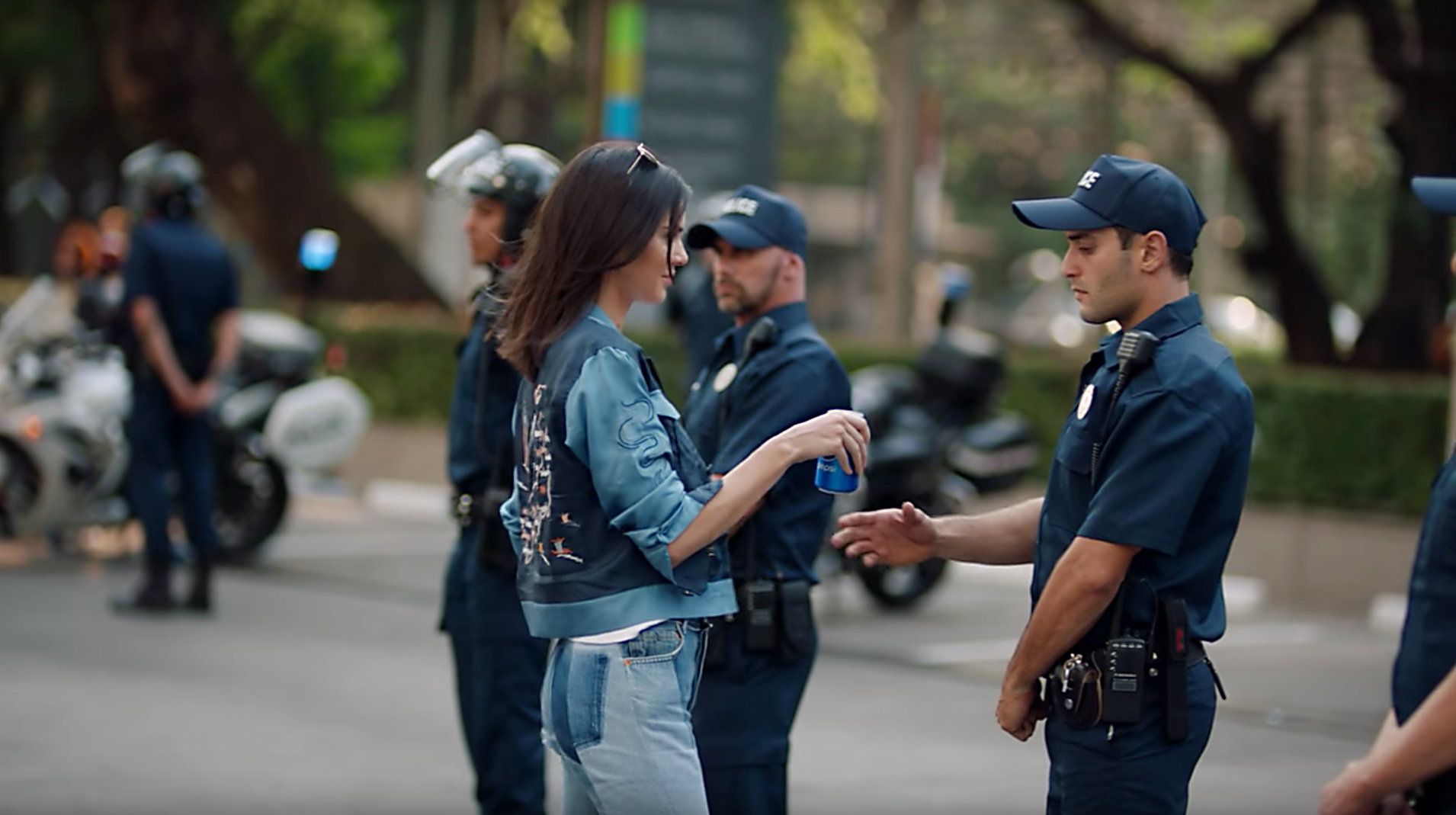
Let's start with a simple idea. The state has no right to hit us. It has no right to cage us. It has no right to kill. If we're supposed to use nonviolent protest, why shouldn't the state be nonviolent with us? Isn't this, indeed, worth protesting for? I come to you with the idea of a satyagraha state.
We have been told that violence is the only way to organize governments, but prophets and philosophers have shown us there is another way. We have been told that any peaceful government will be violently overthrown, but if nonviolence can topple governments, couldn't it also prop them up?
The fact is that we have tried beating, torturing, caging, and killing our way to goodness for thousands of years and it doesn't work. State violence doesn't stop crime, it is itself more crime. It doesn't heal societies, it traumatizes them. We've been fighting fire with fire and everything is on fire. Why not try water?
I invite you to step out of the maya (illusion) of this historical moment (the scribblings of long-dead white men) and learn from Tolstoy, Angela Davis, Jesus, the Buddha, Confucius, and a flock of chickens. And from the simple way we try to raise our kids. Don't hit. Two wrongs don't make a right. There is another way.
The Congress Of Chickens
In the collection Worker's Tales, William Morris (1884) recounts the following meeting of a group of chickens long ago:
In the days before man had completely established his dominion over the animal world, the poultry of a certain country, unnamed in my record, met in solemn conference in the largest hall they could hire for their money: the period was serious, for it was drawing near Christmas, and the question in the debate partook of the gravity of the times; for, in short, various resolutions, the wording of which has not come down to us were to be moved on the all important subject, 'with what sauce shall we be eaten?'
There's a lot of debate until a rather battered-looking barn-door cock stands up and tremulously speaks.
"[He] blurted out in a trembling, shrieking voice not without a suspicion of tears in it; "In short I don't want to be eaten, at all: is it poss—"
But here a storm of disapproving cries broke out, amongst which could be heard loudest the words 'practical politics!' 'county franchise,' 'great liberal party,' 'municipal government for—Coxstead!'
After his departure the meeting ended in all harmony, and a resolution was passed with great enthusiasm that the conclusions come to as embodied in the foregoing resolutions should be engrossed and forwarded to the farmer's wife (or widow was it?) and the head poulterer.
A rumour has reached us that while there were doubts as to the sauce to be used in the serving up, slow stewing was settled on as the least revolutionary form of cookery.
And so here we are today. Slowly stewing in liberal democracies, as climate change turns up the heat. We talk about making this legal or that illegal, but we might as well be talking about being basted in white wine or red. Every law is violence in itself (we'll get to that). Ever constitution that preserves state violence is a menu, and we're on it. We're being eaten alive.
Leviathan
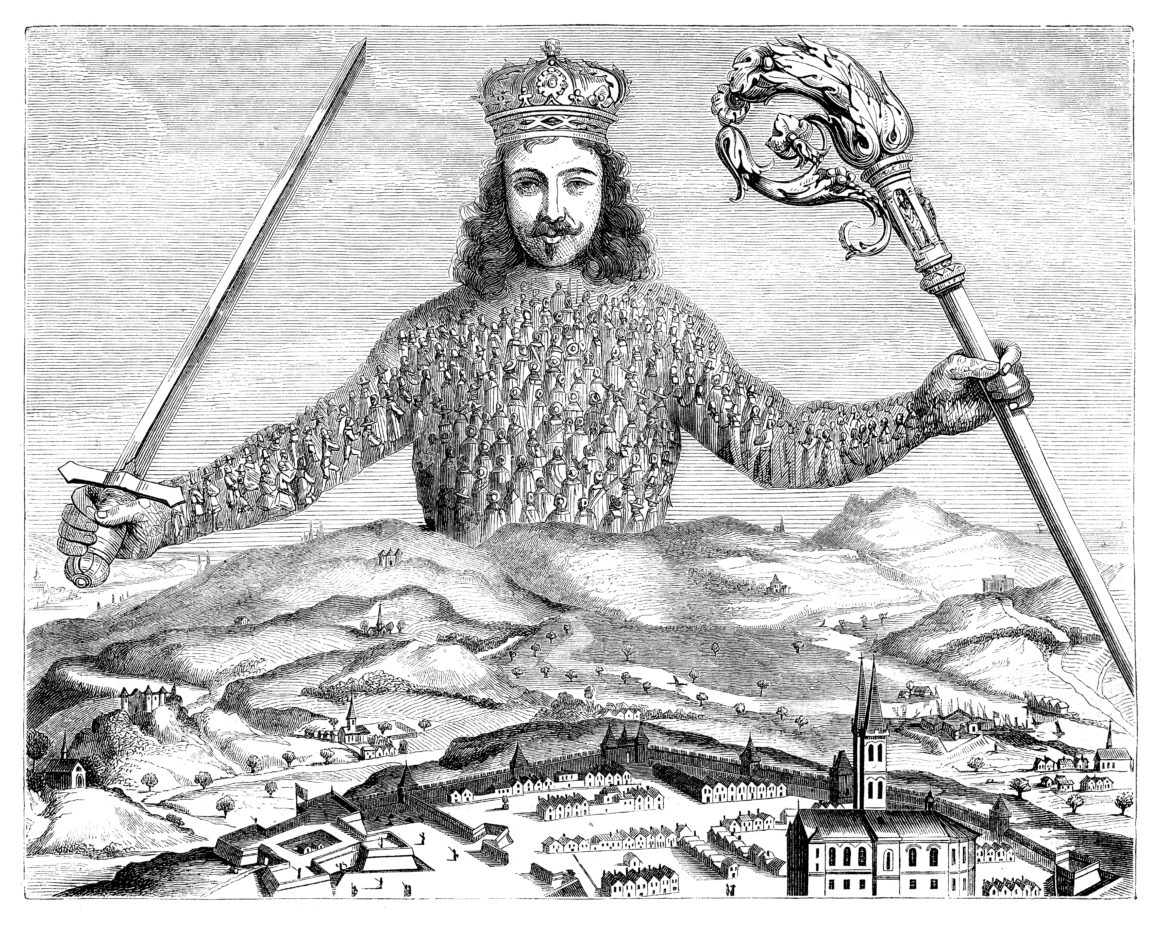

Who is eating us? Let's call him Leviathan. Leviathan is the Mighty Morphin Power Rangers model of governance. All of our (implied) consent combines into a giant, fighting Megazord called a state. We need this deadly robot because the world is full of scary monsters (other people) and without the state's violent protection we'd be at constant war. It's a protection racket. Hobbes himself says so:

Like much of the Enwhitenment, these ideas pose as pure rationality, but it's just an ideology like any other. There is no anthropological proof of constant warfare in a 'state of nature'. In fact, 'modern' European states have been the most violent and warlike in the history of the world.
Every age has its mythology to justify violence and this is just the latest one. In lieu of 'the Sun God said I could hit you and take your shit' we get 'I am Leviathan, Megazord of human beings'. It sounds dumb when I put it this way (because it is) but we still believe this.
Even in modern democracies, we generally accept that the state has some right to eat us, and we debate mainly about the sauce (read me my rights! eat that person first!) and choose between chefs. We rarely ask the obvious question.
What if the Leviathan did not eat us at all?
Tolstoy
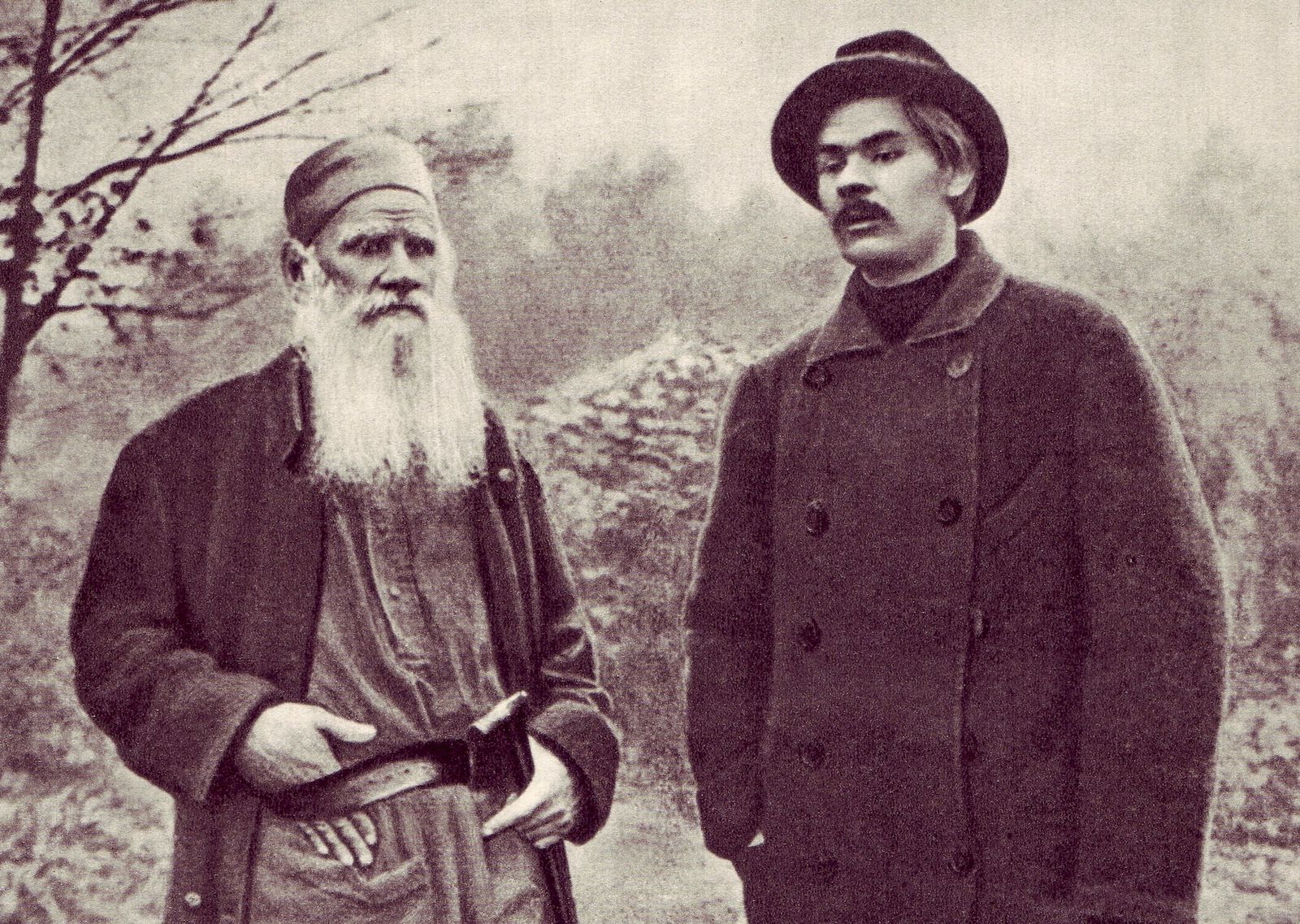
I was introduced to this idea through Leo Tolstoy. His thesis is simple. The state has no right to violence over us at all. None. He tears up the social contract, kicks Leviathan in the dick, and overturns the whole pot. All metaphorically of course, Tolstoy was nonviolent. Leo doesn't just attack bad laws. He attacks the rule of law itself.
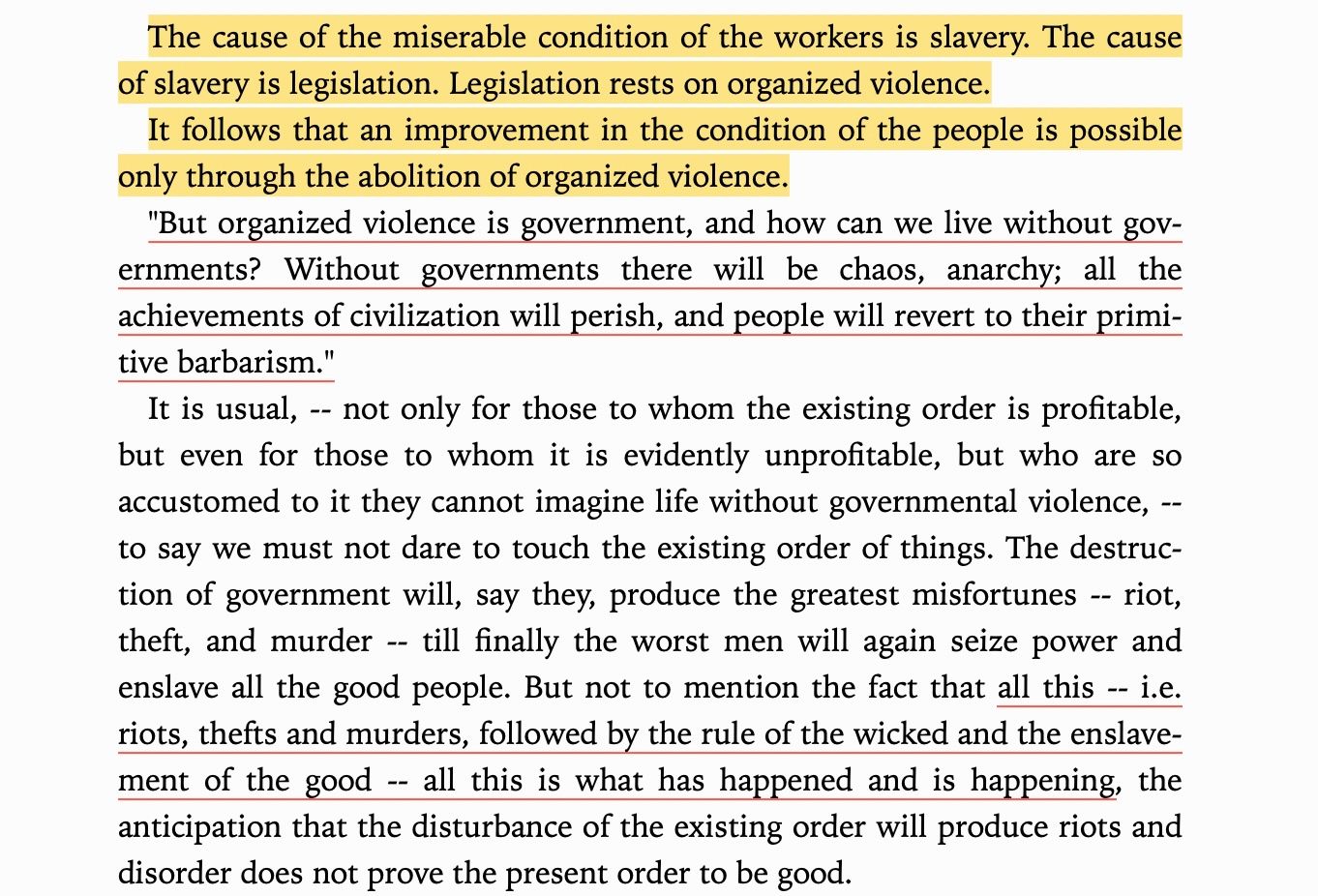
To him slavery is wage slavery is wage slavery, slaving over agricultural land, this is the title of his (short) book, The Slavery Of Our Times. As he lays out, the form of slavery just keeps morphing, from chattel slavery to serfdom to wage slavery to, like, the gig economy now. We keep changing laws but not changing the condition because laws are the cause of the problem, not the cure.

This is a challenging idea because we're used to taking refuge in the law. We defend 'rule of law' like it's always around the corner, but it just isn't. Every law must be enforced, and they are all enforced, ultimately, by armed men. As Hobbes said, "covenants, without the Sword, are but Words, and of no strength to secure a man at all." Remember that this is an ideology, not a statement of fact.
People follow rules without violence all the time. Most families, workplaces, voluntary organizations, and, like, baby showers are organized nonviolently. Most corporations and rich people are governed nonviolently. The whole thing goes back to this myth that we need geopolitical Power Rangers because we're all monsters. But we're not monsters.
We're human and we suck, but by now we understand that you can't beat or cage children (or even dogs) into better behavior. It just doesn't work. It just makes things worse. Abused children are miserable and lash out. A cuffed dog will bite. Why is violence still the default way we govern human beings?
Enwhitenment thinkers dressed up state violence in new mythology but it's the same shit as the Code of Hammurabi. Eye for an eye. It really has made the whole world blind.
3. Hammurabi
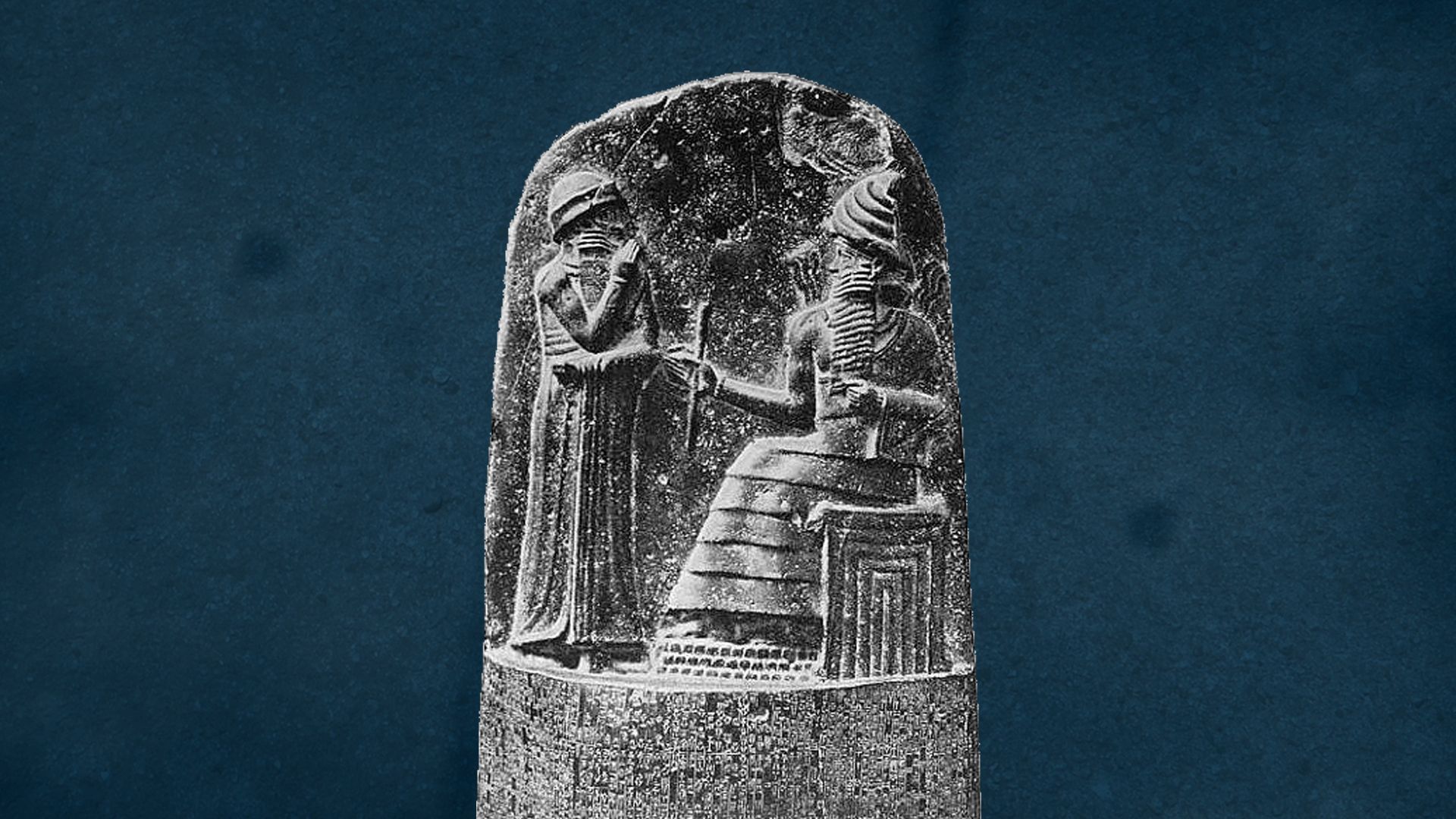
Around 1750 BC, the Babylonian king laid out a legal code that both physically and spiritually survives to this day. Hammurabi carved an eye for an eye into stone and that's still our basic conception of justice today. We think him barbaric for literally doing this, but are we any better? Today if you do something bad, the state will do something terrible to you. It's the same principle as eye for an eye.
Brutality

We think it cruel to blind someone, but today we just neglect people in prison until they go blind. The basic course of punishment has not changed. We've just removed the personal, public torture and made it impersonal and hidden away.
As Angela Davis writes, prisons were where you kept someone before torturing and murdering them. The only innovation that distinguishes us from Hammurabi is that we've taken this appetizer and made it the main course.

Now prison is a place we keep people for decades, and we’ve just crowdsourced the torture. Prisoners (and guards) will abuse each other, while the public makes rape jokes on TV. At least Hammurabic law was done with you quickly. Modern law draws out the torture for years.
Inequality

Hammurabic law was also wildly unequal, and we consider ourselves better than that. We’re not. Again, we’re probably worse. We’re shocked at Hammurabi’s description of slavery, but no age thinks that its own slavery is bad. As Tolstoy writes:
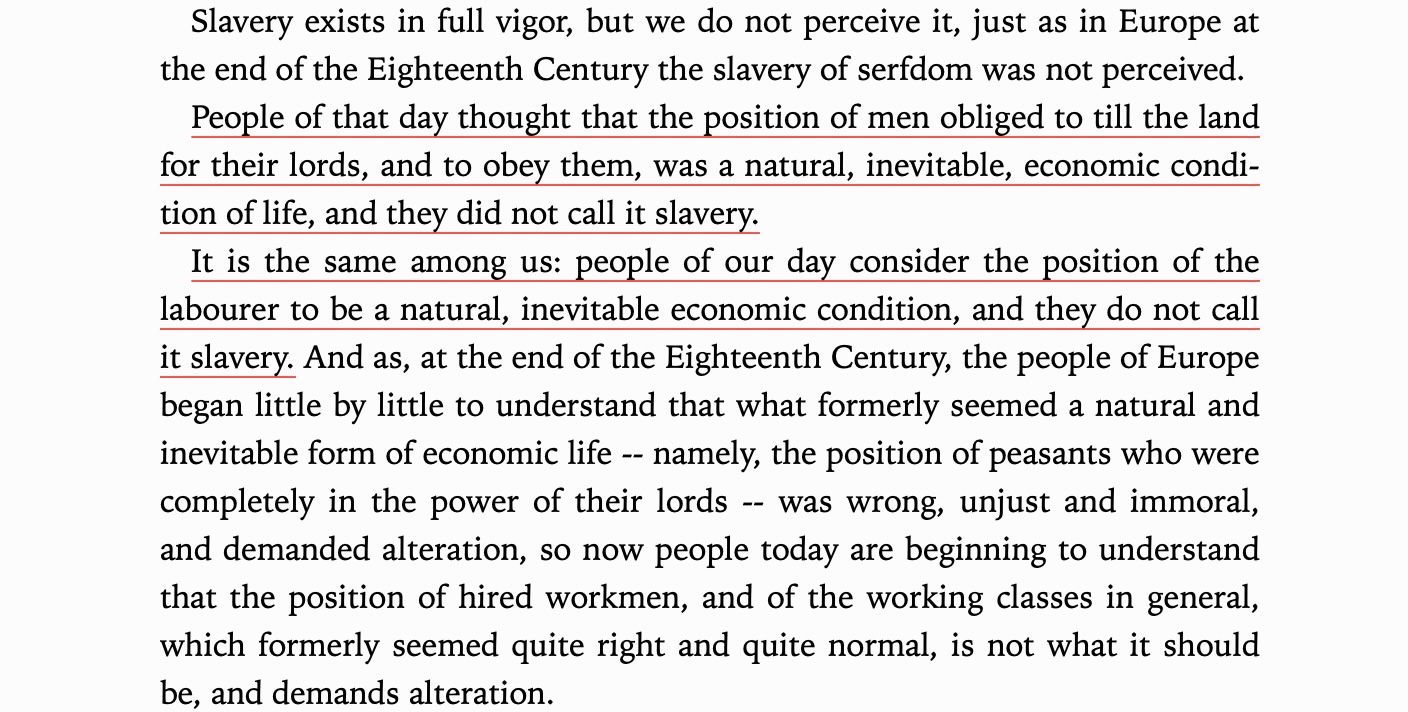
Our inequality in front of the law is nowhere more clear than in prisons.
I was arrested with a poor man once and they put him in the cell while they let me go back to the hotel, get food, and made a bed for me on their own desks. They let me charge my phone and I called my parents until they got me out (we all got out). This isn’t just Sri Lanka, the rich get treated differently everywhere.
The only modern legal innovation over Hammurabi is gaslighting. We have many different classes under the law, some of them not even human. Here's a few:
- At the top are corporations, who are legally people. They’re above criminal law almost completely. They can kill, steal, bribe, whatever. Enforcement against them is always non-violent and they often get bailed out. Corporations openly bribe and write laws themselves.
- The highest human class is politicians, who get to both write laws and generally be above them. Only in places like Korea do they get arrested with the regularity they deserve.
- Next (but sometimes above) are rich people. If you’re rich you can get away with rape, fraud, and murder, whatever. Rich people are policed less, prosecuted lightly, and treated non-violently if they ever get ensnared. Rich people write laws as well.
- Then there’s the rest of humanity, who live about as well as slaves. Poor people get harrassed more, arrested more, and thrown in prison for much longer. They get exploited mercilessly by the higher classes. Most theft is actually wage theft, corporations stealing from workers. If ordinary people want to make laws they have to A) get rich B) delegate power to a rich representative or C) riot.
Our idea of blind justice is a religious belief. She’s a temple diety and you have to pay the temple priests (lawyers) to make her look the other way. We’re still following the basic logic of the Hammurabic Code, just with more hypocritical sauce on top. Shit was violent and unequal then and it was written in stone. Shit is violent and unequal now and it’s just unwritten. Same shit, different day.
Jesus Christ
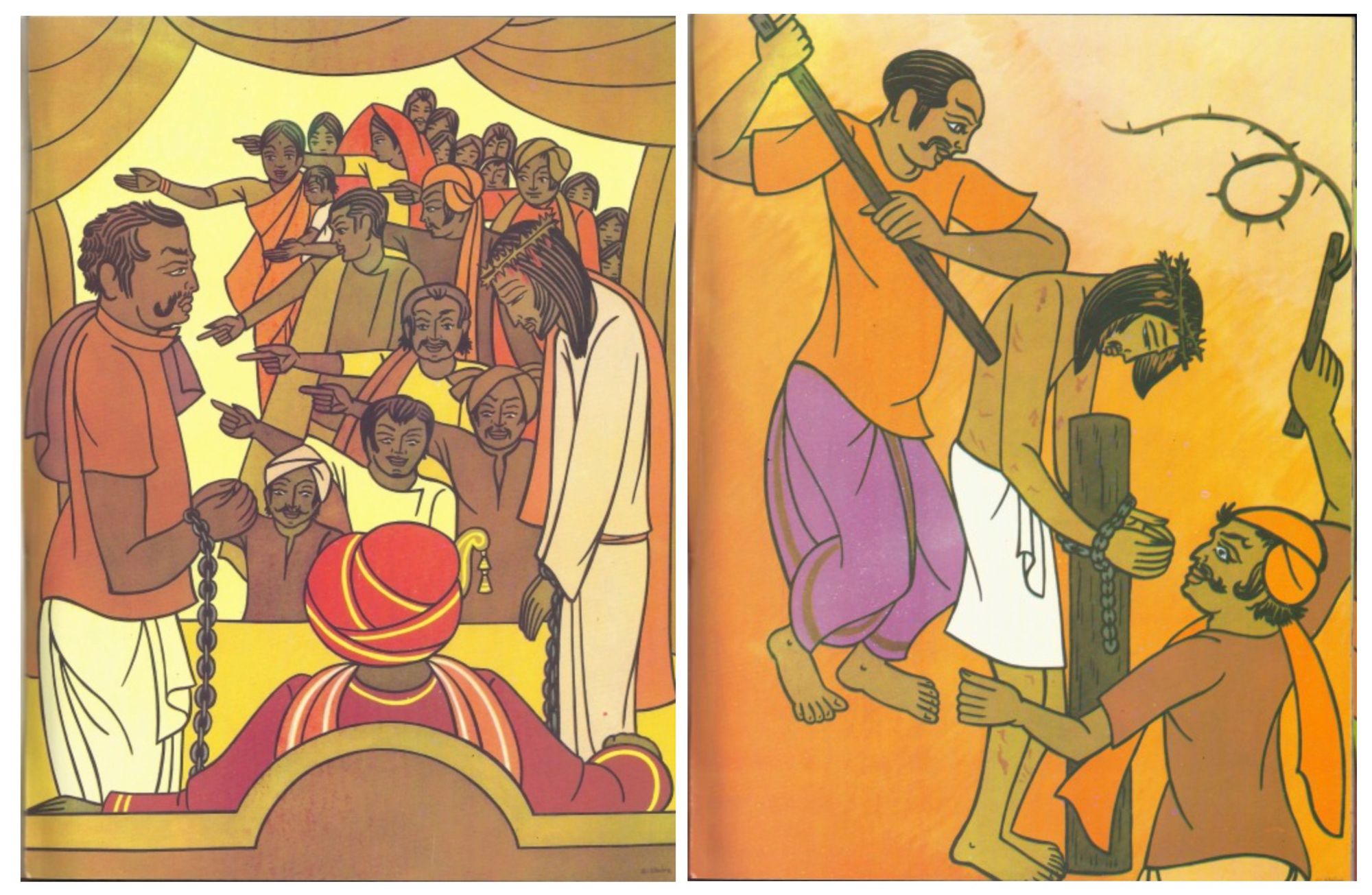
It's not like things have to be this way. Violence is a choice, dressed up in different mythology throughout the ages. We're imaginative creatures, it's not like we just can't have other myths.
Throughout history we have been told alternatives to eye for an eye. We just don't listen. The most obvious example was Jesus Christ, telling people to turn the other cheek 2000 years ago. This teaching is actually the core of Tolstoy's book.

And it wasn't just Jesus. The Buddha was saying similar things 500 years before.
Buddha
The Buddha saw hatred, anger, and suffering as a wheel, a cycle, and he was determined to get off. You can't violence your way out of violence or hate your way out of hate. This is just spinning the wheel.
"He abused me, he defeated me, he robbed me": the hatred of them, who harbour this thought, is not appeased.
Hatred is never appeased by hatred; it is appeased by non-hatred. This is the eternal law.
(the Dhammapada, translated by E.W. Adikaram)
This is also not just a religious idea. There are other (in my opinion better) philosophers than the Enwhitenment ones, and they had drastically different ideas about governance. Take Confucius, for example. That supposed proponent of blind order didn't believe in laws or punishments at all.
Confucius
When asked about binding people with litigation Confucius basically shrugged.
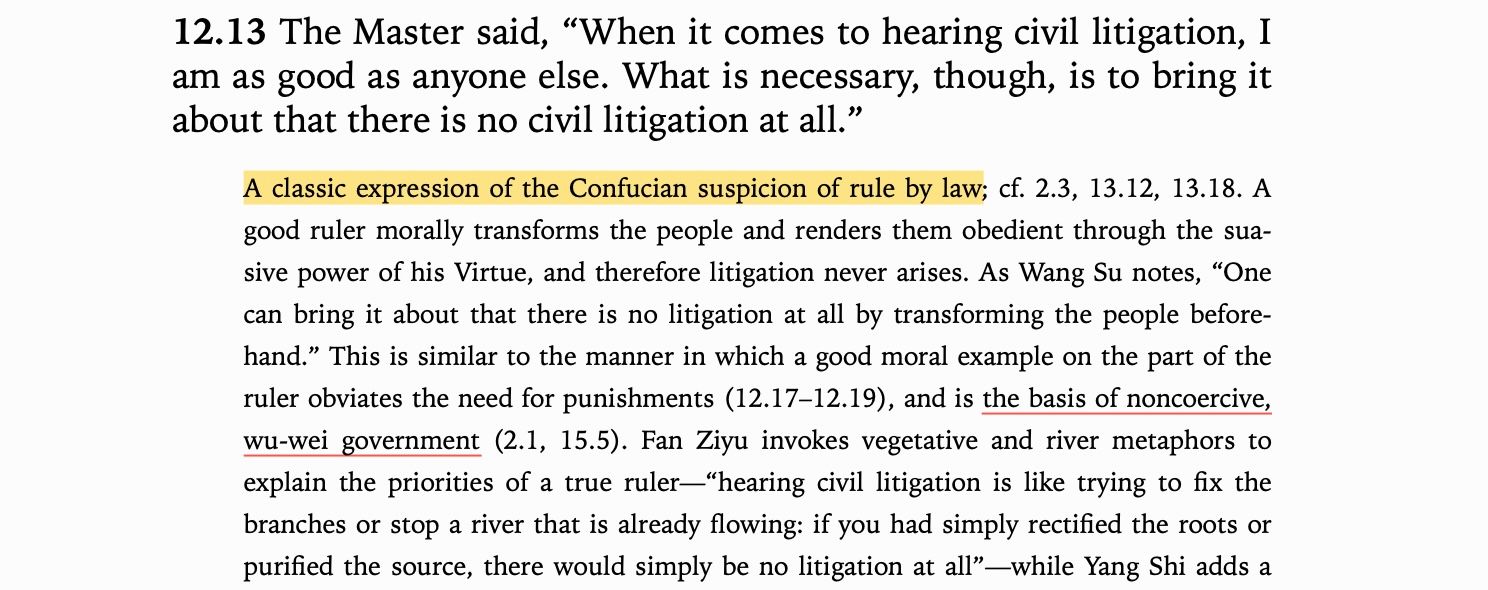
The Confucian idea of good government was fundamentally non-coercive. He devoted zero attention to beating the common people into submission and instead exhorted leaders to improve themselves. A good ruler would get themselves and their house in order, then sit back and rule by what I call 'vibes'. Take his description of an ideal ruler. Dude sounds like he does yoga.
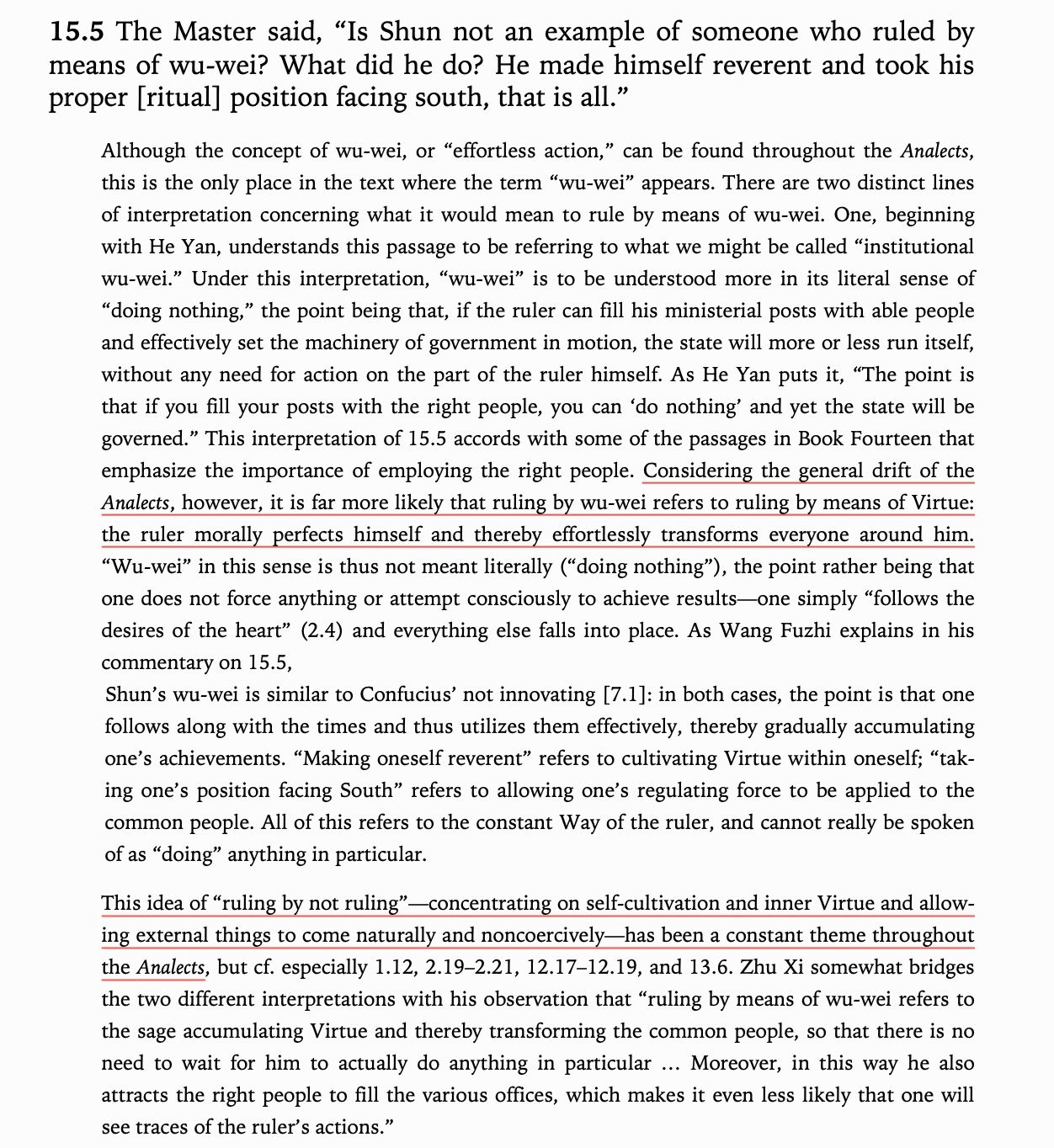
Confucian leadership was about the leader setting a virtuous example, not making an example of the poor. As anyone with children or dogs would tell you, coercion and violence just don't work. It makes thing worse. Children follow what you do, not what you say. Dogs don't know what the fuck is going on and violence against them is just cruel.
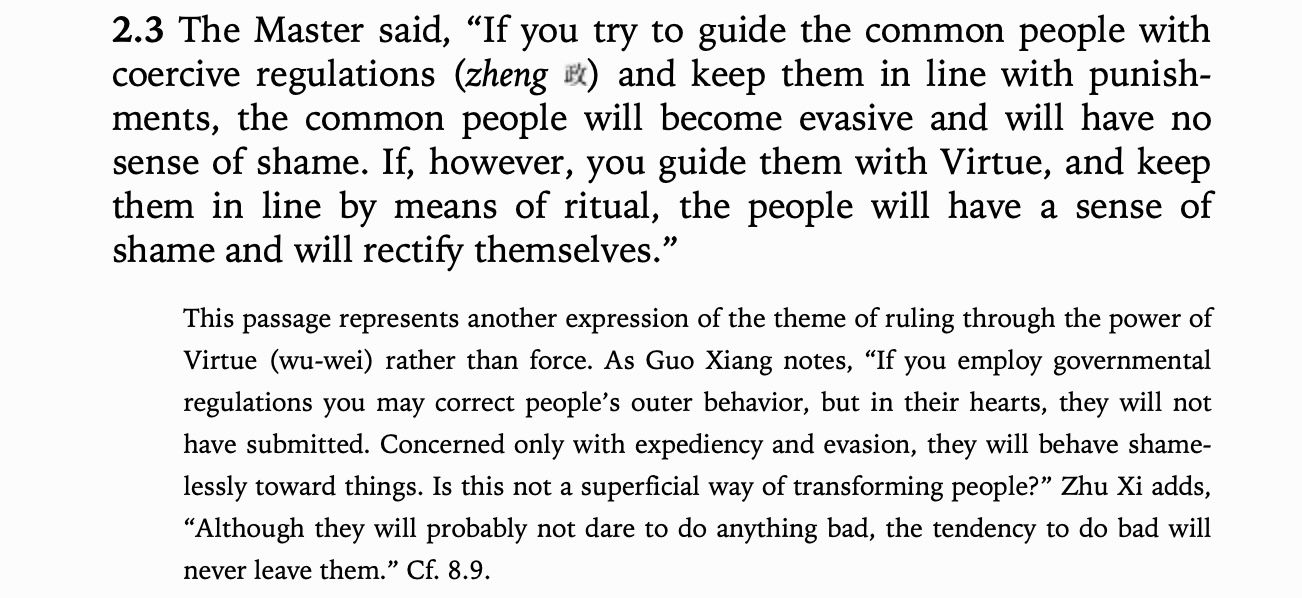
Today we live in societies violently preoccupied with the virtue of poor people, while the rich behave like absolute rogues. Confucius looked at it the completely opposite way. What use is it making a law that says 'do not kill' and then killing to enforce it?
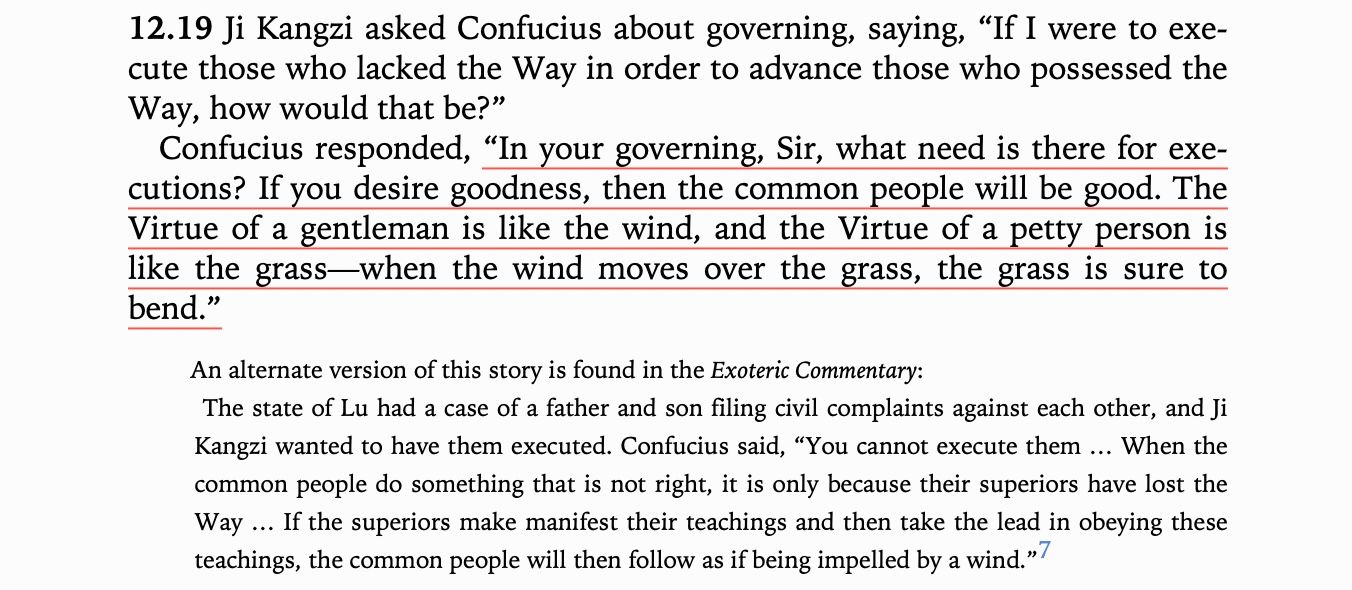
Therefore, if we want a virtuous society we should not do every criminal thing to get there. We should try virtuous leadership. Yeah, maybe people will get away with some shit, but what we're doing now actually increases crime. In order to prevent crime, the state does a shit-ton of crime. Maybe ditch the hypocrisy and make government take the Hippocratic Oath. Do no harm.
Towards A Satyagraha State
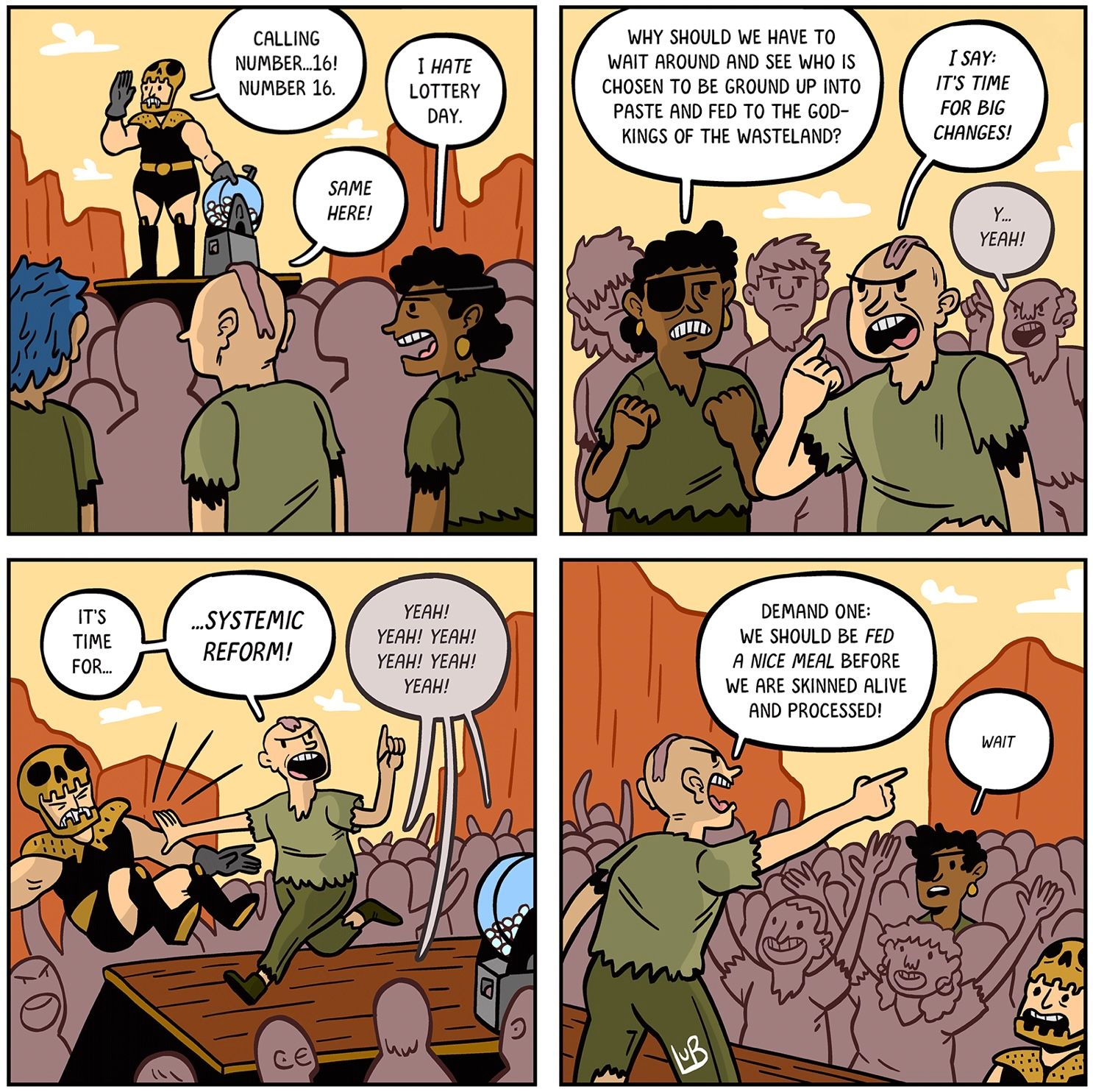
What would a non-violent government look like? Tolstoy's hype-man Alymer Maude explains it well:
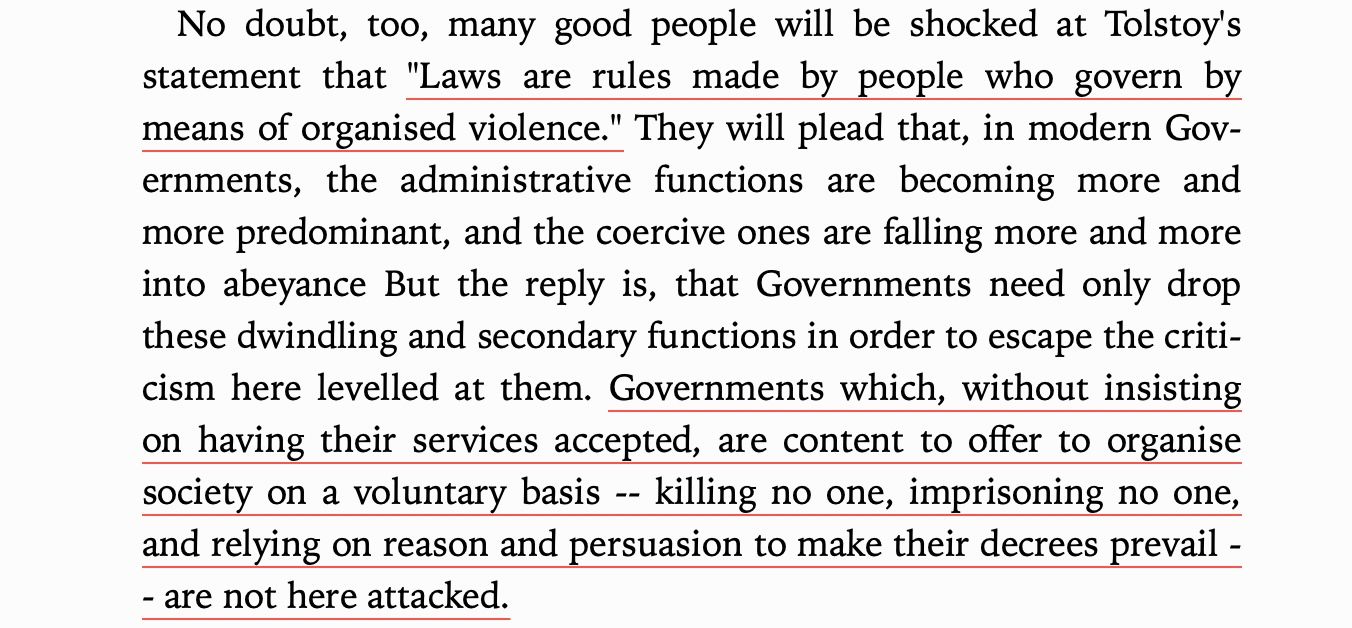
Non-violent governments are those "which are content to organize society on a voluntary basis—killing no one, imprisoning no one, and relying on reason and persuasion to make their decrees prevail." If this sounds crazy to you, just understand that corporations and rich people are already governed this way. Look at our legal class ranking above. As William Gibson said, the future is already here, it's just unevenly distributed.
We are so used to being cuffed and caged that the idea of non-violence seems impossible, dangerous even, but just remember the chickens. They settled on slow stewing and look at them now. They live under the dictatorship of Colonel Sanders.
So don't stew. Don't sauce. Kick over the pot and step out of the mythology that says dying is the only way to live. Demand nonviolence from your own governments. The state says protestors must be nonviolent to have any legitimacy. What about them?
Nonviolent government is an old idea, it's the right idea, and nonviolent protest has shown that it has real political power as well. Nonviolent government is also a simple idea which unites various calls for reform (prison reform, police reform, immigration reform) under one abolitionist banner. No state violence against human beings.
Therefore I, like our tremulous chicken, propose a resolution here, what if we were not eaten at all?
For more of these ideas please sign up for my newsletter at indi.ca, ideally a paid sub because capitalist realism. Tolstoy is an important read and I've written something longer about him here, but you should also just read his book. Don't worry, it's much shorter than War and Peace.